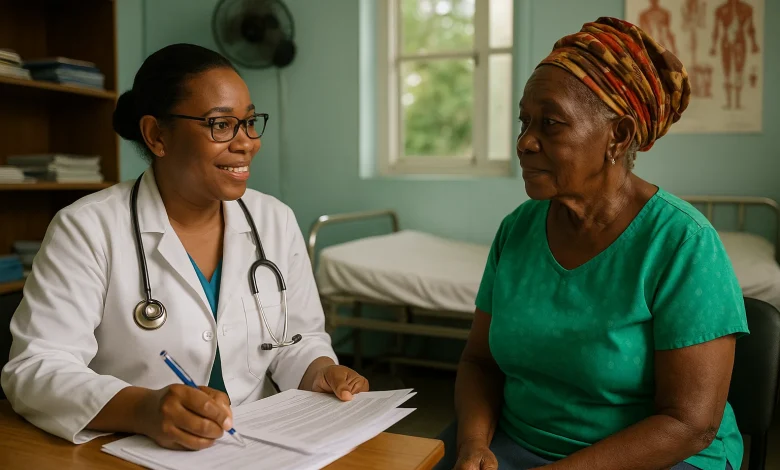Health Services Act of Dominica

The Health Services Act is one of the principal statutes regulating health services in Dominica. It provides the legal foundation for how medical professionals and health institutions operate, ensuring that healthcare delivery is lawful, accountable, and consistent with national policy. The Act also defines the role of the Ministry of Health as the primary authority for oversight.
Legislative Purpose
The Act was introduced to consolidate health governance under a single legal framework. Its purpose is to guarantee that patient care meets acceptable standards, that professionals are properly licensed, and that institutions maintain accountability. It also provides disciplinary procedures to address misconduct, negligence, and institutional failings.
By establishing these rules, the legislation strengthens public confidence in the healthcare system and ensures that services are delivered fairly across both public and private providers.
Licensing and Registration
One of the most important features of the Health Services Act is its licensing system for professionals. The Act requires that doctors, nurses, dentists, and allied health workers must all be properly registered before practicing. Licensing involves proof of training, recognition of foreign qualifications where applicable, and placement on an official register.
The Act gives authority to professional bodies such as the Medical Board of Dominica to manage entry into practice, supervise professional conduct, and recommend disciplinary action. Renewal of licenses is also covered, with requirements for practitioners to demonstrate continued competence and compliance with ethical standards.
Institutional Regulation
Hospitals, health centres, and clinics are also regulated under the Health Services Act. Facilities must meet specific requirements related to infrastructure, staffing, and service quality. The Ministry of Health is empowered to inspect and monitor institutions to confirm compliance.
Failure to meet standards can result in sanctions, including suspension of operating licenses. These provisions ensure that patients are not exposed to unsafe conditions and that institutional accountability is embedded within the health system.
Disciplinary Measures and Enforcement
The Act provides a clear framework for dealing with professional and institutional misconduct. Complaints can lead to investigations by the Ministry or professional councils, and penalties can range from fines to suspension or cancellation of licenses. The Act also makes it an offence to practice medicine or operate a health facility without authorization.
Appeals from disciplinary decisions are directed to the High Court, ensuring legal oversight and due process.
Enforcement and Penalties under the Act
- Practicing without a valid license is treated as a criminal offence.
- Operating an unregistered or non-compliant health facility can result in closure or fines.
- Professionals found guilty of misconduct may face suspension, removal from the register, or additional penalties imposed by the court.
These measures guarantee that both individuals and institutions are held accountable for upholding standards in healthcare delivery.
Relationship with Other Health Laws
The Health Services Act works in tandem with related statutes: the Public Health Act (1968) regulates sanitation and disease control; the Pharmacy Act oversees the distribution of drugs; and the Dominica Hospitals Authority Act governs hospital management. While these laws cover different aspects of healthcare, the Health Services Act is the central instrument regulating practitioners and institutions.
Core Functions of the Health Services Act
- To regulate the licensing and registration of medical professionals.
- To establish inspection and approval processes for hospitals and clinics.
- To create disciplinary procedures for misconduct and malpractice.
- To provide the Ministry of Health with oversight powers across the healthcare system.
Together, these functions strengthen the reliability and professionalism of health services in Dominica.
National Significance
The Health Services Act of Dominica ensures that healthcare delivery is not only regulated but also aligned with broader national priorities. It supports government strategies under the National Resilience Development Strategy 2030 (NRDS) by making sure healthcare systems are robust and prepared for challenges, whether they are chronic diseases, natural disasters, or global pandemics.
Its importance has been highlighted in times of crisis, such as after Hurricane Maria (2017), when rebuilding health facilities required assurance that standards set under the Act would be applied in new hospitals and clinics.
The legislation continues to be a cornerstone of public trust in healthcare. By requiring strong professional standards, it protects patients, enhances the credibility of medical institutions, and strengthens Dominica’s wider governance framework.




